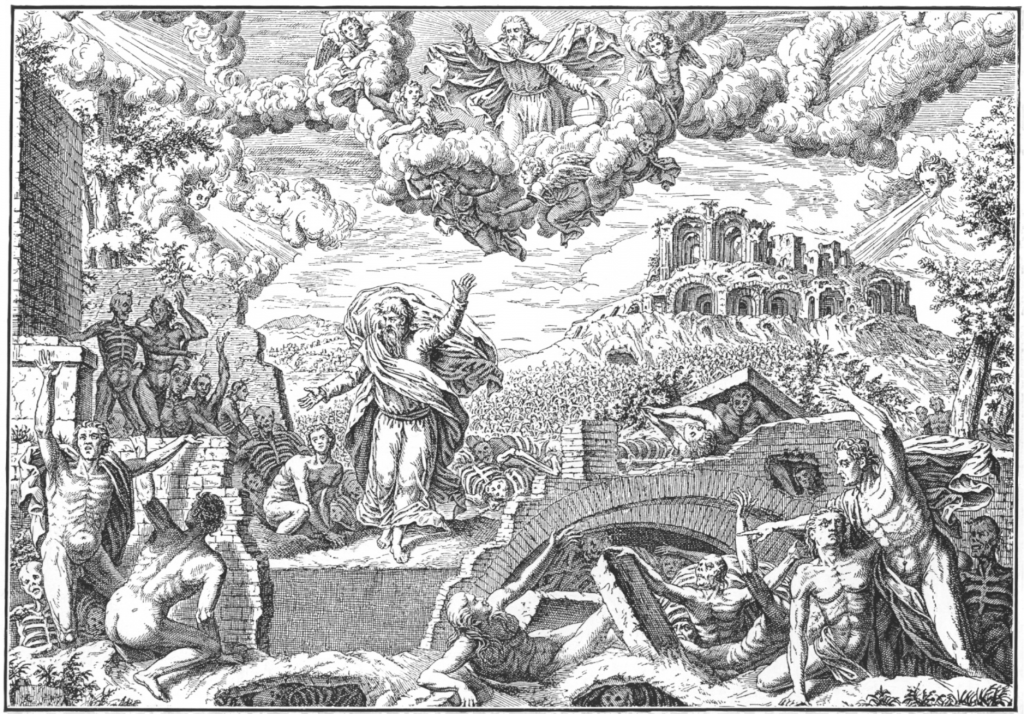The four living creatures in Ezekiel 1:4-28 are real spiritual beings that Ezekiel saw in his vision. This was a supernatural experience that he encountered as what was revealed to him was a likeness of cherubim at Yahweh’s seat of power independent of position, space, or time. The anthropomorphic images Ezekiel perceived were for his comprehension within his surrounding environment as “the heavens were opened” before him (Ezekiel 1:1). The heavens were opened to reveal the vivid nature of God’s glory and that of His cherubim. The “heavens” that were opened were external to Ezekiel’s experience to indicate that the encounter was more than a theophany only internal to the prophet. The term “heavens” (samayim) refers to the abode of God and His angels. What Ezekiel saw, as written in Scripture, was a vision of who and what was from there.
The vision that Ezekiel encountered was not from his imagination. Since the Ezekiel 1 text does not indicate that the theophany was presented to anyone other than the prophet in proximity to what occurred, we cannot conclude that Ezekiel’s vision was open for everyone to see. In other areas of Scripture, we are presented with visions, and supernatural appearances among prophets and apostles recounted in detail. Either in a real descriptive sense or as a symbolic expression to convey meaning. For example, Christ’s transfiguration was an actual event that occurred to indicate the glorified state of Jesus physically. Conversely, for example, there were visions of John in the book of Revelation that conveys imagery to represent actual meaning (such as the lamb in heaven). What was revealed to individuals or groups in Scripture was determined by God, whereas what was given to an individual by dream or vision is the same yet only exclusive to that person.
God’s perfect will gives select individuals a specific reason to produce meaning for God’s glory and to communicate, meaning that He was transmitted. The messaging readers of Scripture get from encounters, visions, and dreams, have their purpose in alignment with God’s design and intent. While Ezekiel’s vision was not a practical reality in an Earthly sense, the encounter was very much real in a spiritual sense (Num 23:19). What constitutes reality, or the perception of it, is determined by God, not humanity’s limited capabilities. People are merely given the utility of sensory perception to interpret meaning as presented naturally or supernaturally. Either in a physical way or by what the spirit is situated to understand or perceive. The brain is the mind’s interface to the material world. God is the spirit’s interface to the spiritual realm. God has dominion and control over both as people are comprised of both flesh and spirit.
Ezekiel’s vision was a look into a representative nature of God’s presence. To include His glory, His cherubim, and the surrounding realm around which He occupied. If He chooses to peel back the heavens to reveal additional dimensions to individuals or groups, He is certainly capable of that (Jer 32:27).


















